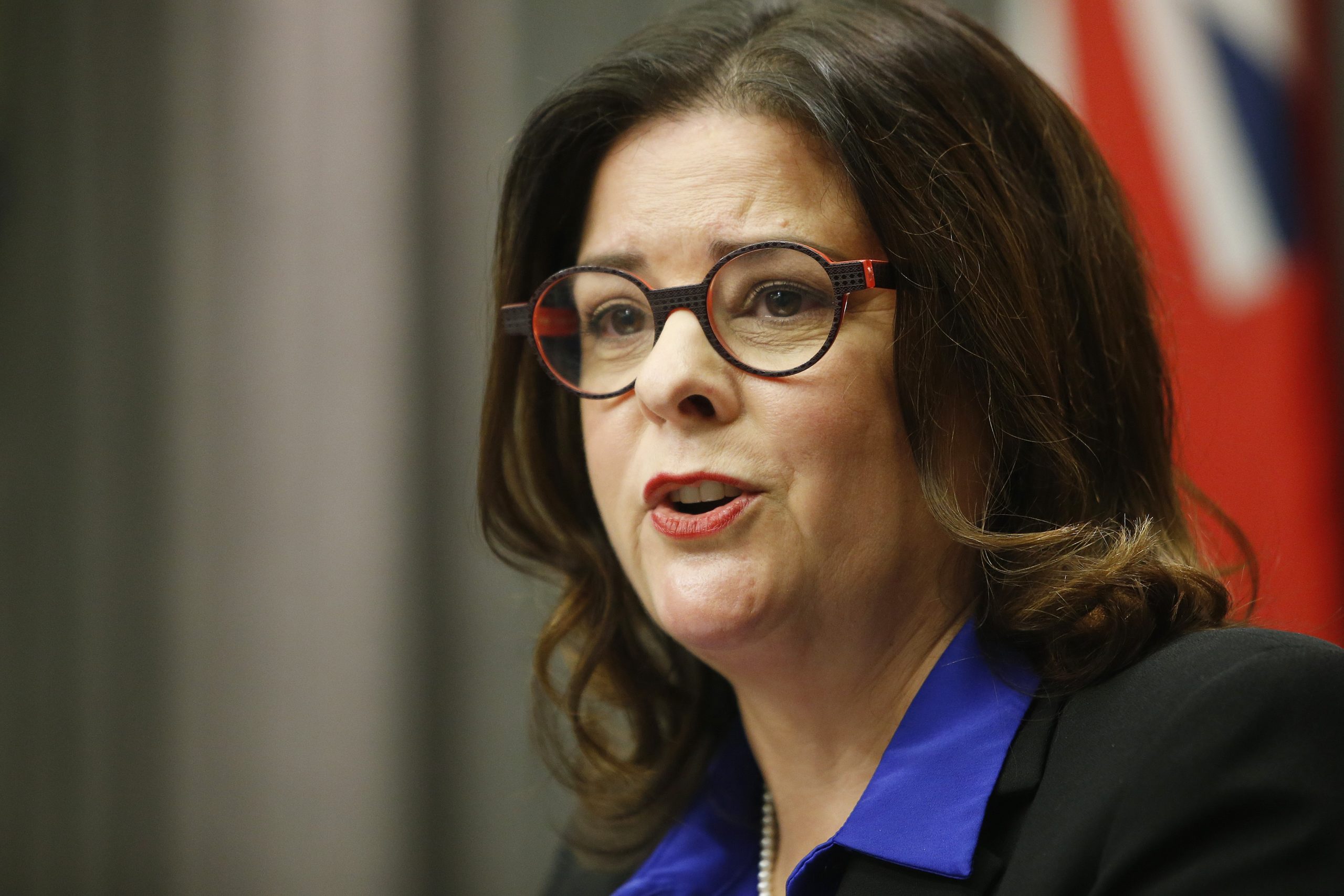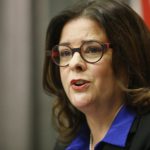Manitoba premier does not like federal carbon backstop, eyes provincial price

WINNIPEG — The Manitoba government is hoping to design its own carbon-pricing plan that could shift the emphasis slightly away from income-tax rebates to spending more on green-energy projects.
"What I want to see is results, better results, in Manitoba," Premier Heather Stefanson said in a year-end interview with The Canadian Press.
"It's not about charging somebody something and then giving it back on the other hand. I'm not sure that that does anything to help our environment."
Stefanson pointed to a recent announcement of financial support for transit expansion and electric buses in Winnipeg as an example of the kind of projects that could be funded.
"We want to move toward that electrification of vehicles."
Former premier Brian Pallister had planned in 2018 to have a flat $25 a tonne price on carbon. That was lower than the minimum escalating level set by the federal government, but Pallister said Manitoba deserved credit for billions of dollars spent on clean hydroelectric projects, which utility customers continue to pay for.
Ottawa brought in a backstop carbon price on provinces that did not meet its demands and promised to return the money — 90 per cent through personal income tax rebates and 10 per cent via investments to help businesses and communities reduce their carbon footprint.
The federal price started in 2019 at $20 a tonne and is set to rise to $170 a tonne by 2030. The current price of $40 a tonne adds about 8.8 cents a litre to gasoline, or about $3.50 more to put 40 litres into a car.
Manitoba took the issue to Federal Court and lost. Soon after becoming premier, Stefanson announced she would not appeal the ruling and planned instead to negotiate a deal with Ottawa.
Stefanson said she does not like the federal backstop and wants provincial control over carbon.
"I don't trust that it's necessarily going back to where it should ... I think there's better ways to invest that money in Manitoba where it could provide a cleaner, greener province."
Opposition NDP Leader Wab Kinew said he would enact a provincial carbon price and divide the money — 90 per cent on refunds to individuals and 10 per cent on initiatives, including a charging network for electric vehicles and new ways to help the agriculture sector reduce emissions.
Kinew had called for an end to court battles with Ottawa when Pallister was premier.
"Nobody expects another court case against Ottawa to help fight climate change, so we've got to move beyond that and find a collaborative approach, a negotiated way forward," he said.
This report by The Canadian Press was first published Dec. 23, 2021.
Steve Lambert, The Canadian Press




